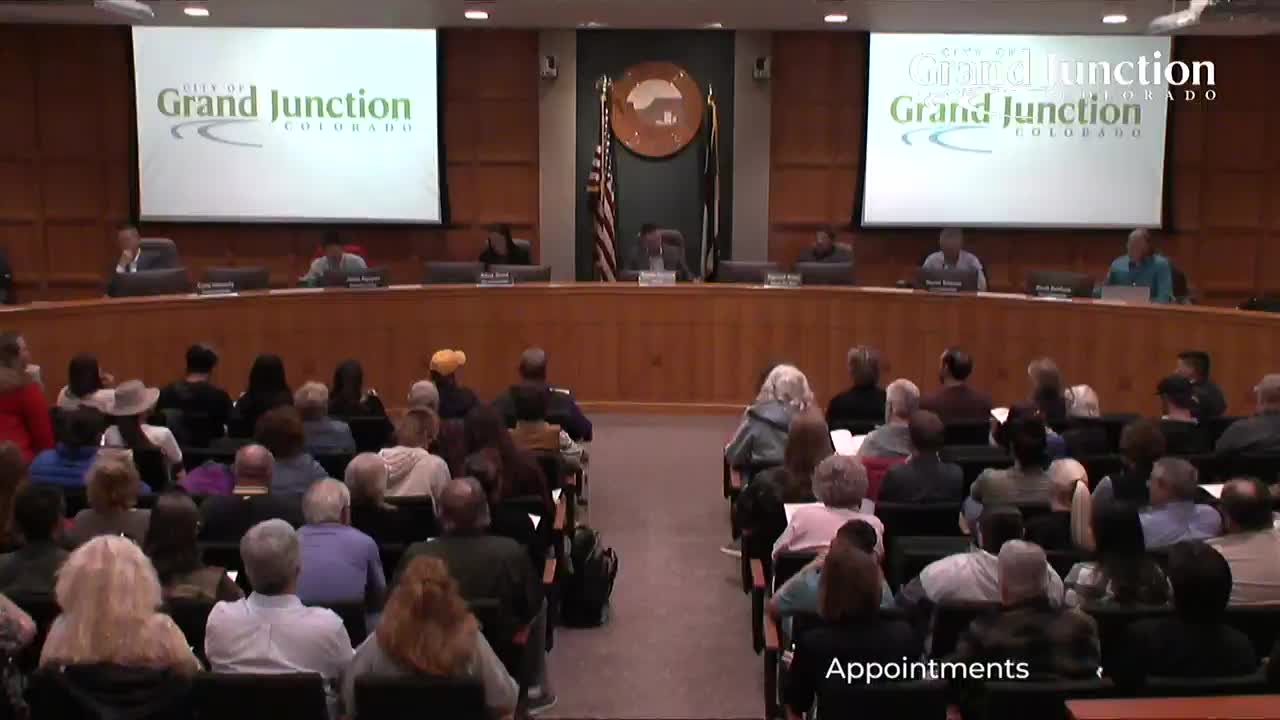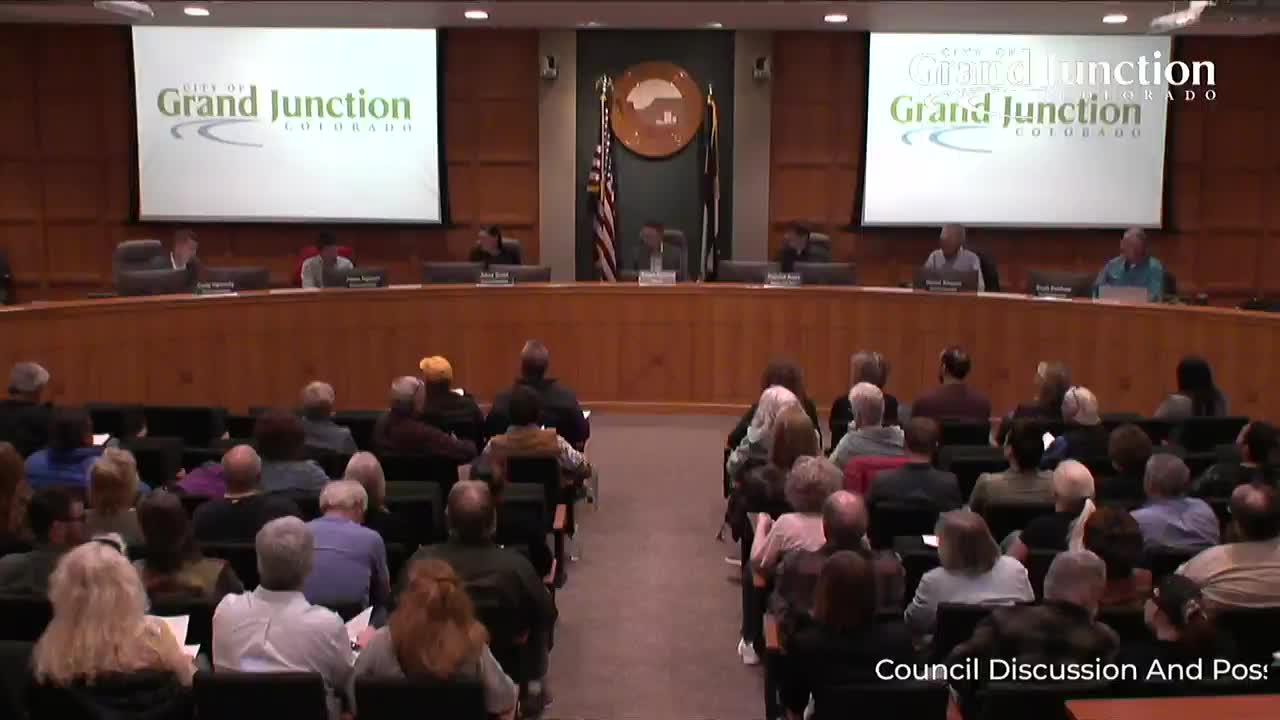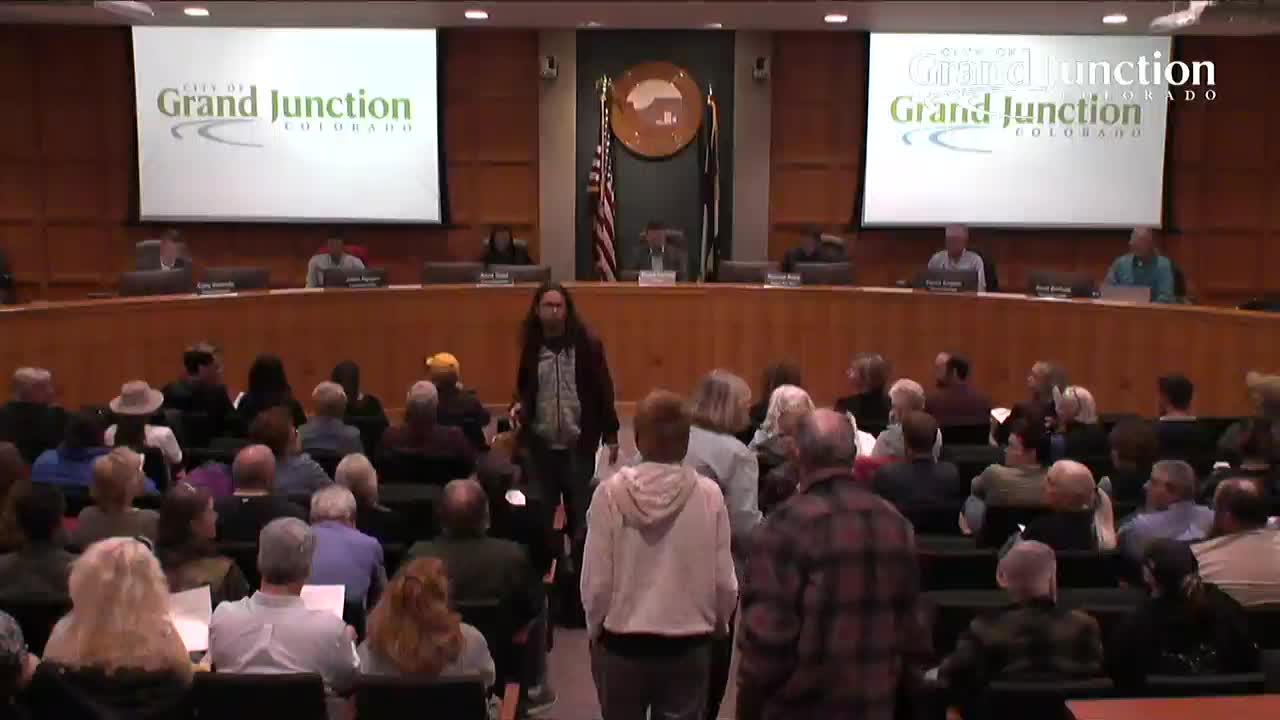Article not found
This article is no longer available. But don't worry—we've gathered other articles that discuss the same topic.

Votes at a glance: Grand Junction council adopts zoning amendment, approves appointments and consent agenda

Neighbors press Grand Junction council over 448 Bookcliff, HOME Act limits on regulating group living

